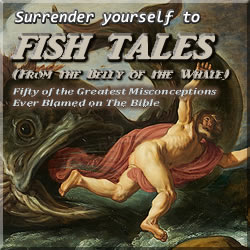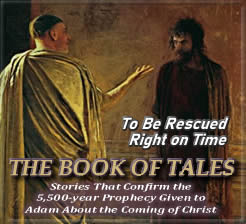Of God’s Expanding Empire (Cont’d)
A New Frontier
From passages that speak of the Earth’s goodness, we see that Jesus’ reference to His Kingdom not being “of this world” doesn’t mean this world is entirely evil just because Adam’s descendants continue as prisoners of death, Hell, and the grave until the consummation of the ages. For anyone who cares to notice, in contrasting His Kingdom with this world, Jesus didn’t say the Earth itself was unworthy or ungodly; He simply stated that His Kingdom wasn’t “of this world.” The Greek word that Jesus used for “world” is cosmos, which doesn’t speak of the Earth and all its fullness per se but, rather, of a world system, as in, a world philosophy or ideology.
So, in making this distinction between these two realms, Jesus wasn’t warning us that because His Kingdom is so much better than our world, we should treat the Earth as nothing more than the devil’s domain. If that were true, then how are we to interpret what the gospel writer said about the origins of this cosmos? Said John:
The true Light, who gives light to every man, was coming into the world. He was in the world, and though the world was made through Him, the world didn’t recognize Him.1
Story Continues Below
Says Richard Price—the founder and CEO of Academia.edu—on his podcast In Depth With Academia:
On Earth as It is On Heaven: The Promise of America, Technology, and the New Earth is:
To hear Price’s book review of On Earth as It is On Heaven, CLICK HERE.
To watch author and historian W. Kent Smith discuss the contents of his book On Earth as It is On Heaven, at the Sacred Word Revealed Conference ‘23, hosted by Zen Garcia, CLICK BELOW.
Story Continues From Above
Because John used the same word—cosmos—when speaking of the world in this verse, we can conclude that if Jesus Himself made the world, it follows that the cosmos isn’t by nature alien to the God Who created it. As such, we see that Christ’s purpose, in contrasting His Kingdom with the present world, was never to demonize the Earth and its inhabitants just because we’re enduring the aftermath of Adam’s disobedience. It was simply a prelude to understanding that the present cosmos required a radical intrusion from an outside force, which could only occur by establishing the Kingdom of Heaven on Earth according to God’s unfolding plan.
Further evidence of the compatibility of God’s Kingdom and this Earth can be seen when we look to the famous prayer of Jesus, where He teaches us to pray for “God’s will to be done on Earth as it is in Heaven.”2 If these two spheres of existence are as foreign to one another as tradition often has us believing, why would Jesus urge us to pray for them to merge in this way?
What’s more, our traditional view of the incompatibility of Jesus’ world and ours is based on the English phrase that states His Kingdom isn’t “of this world.” But actually, the Greek word used in this phrase is ek, sometimes transliterated as ex, as in, deus ex machina, which is to say, “god from the machine.” As such, what Jesus said was: His Kingdom isn’t “from this world.”
Now, at first, this might seem like an insignificant shift in meaning, but in fact when we focus on the assumption that Jesus’ Kingdom isn’t “of” this world, it implies that there’s an impenetrable barrier between Earth and this other place. But in contrast, saying that His Kingdom isn’t “from” this world just lets us know it didn’t originate on Earth but instead comes from somewhere else.
So, while one word—of—leads us to believe that we need to leave the Earth to go where Jesus is, the other word—from—lets us know that while that Kingdom definitely comes from another place, it’s now taking up residence in our cosmos as a new frontier of God’s expanding Empire.
The following work concerns the story of that new frontier and of that expanding Empire, manifesting itself, one person, one day, one prayer at a time.








